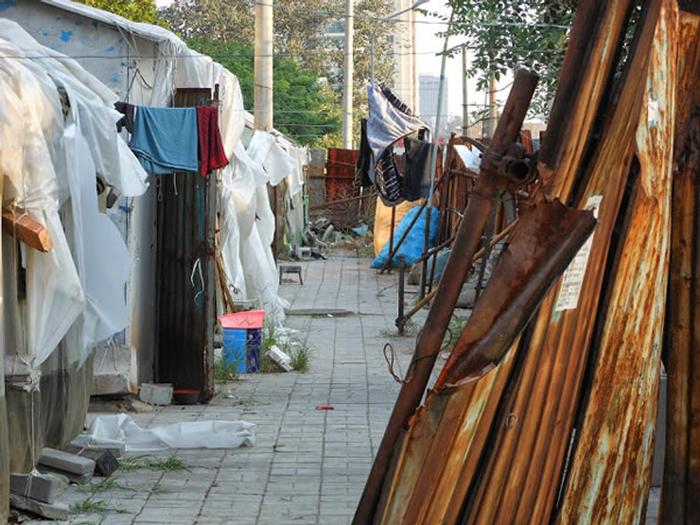Winta Assefa - ProposalTo Stand Back and ObserveAs a Saudi-born immigrants' child, there's a lot I'm yet to learn about my father's homeland, Ethiopia. But even after all the years I studied architecture in this country, it's as if all I could muster is beginning to ask the right questions. So, for the past five years on campus, we were frequently asked to go to parts of town I'd never visited before. What surprised me often was that most of my Ethiopian-born classmates hadn't been to those places either. Through time, I found that most of them are places that the city administration, investors, and residents seemed to have given up some time ago. As in many overcrowded cities worldwide, the places where rent eats up the largest proportion of the citizens' salaries also happen to be where people lack water and other services the most. From term to term, we were told to study those places as though they were books. We mapped the qualities we saw there, coaxed people into being interviewed, got offered tea and mobile numbers. I had a phone robbed from me on a site visit once. But about every place we visited had people who were rich in something that wasn't obvious at first sight: a specific skill. Designing prints, carpentry, and pottery were some of the skills we saw in those different neighborhoods. Most of us tend to highlight those skills in a comprehensive manner. We map everything down and lay down the interviewees' ideas. But then we digress. We never go back to the places we drew our research from to let them know how we translated their needs into designs. We make beautiful designs that are doomed to fail, get our grades, and move on to the next semester, next neighborhood. But in retrospect, the most valuable thing we took out of our militaristic campus wasn't the ability to draw detailed plans or make pretty sketches that glorify the makers. It's to develop a keen eye, receptive ear, and vivid imagination. Those skills won't just help us act as prosthetics for the existing, struggling societal bodies, either. Designing exactly what the people in a place want without considering the city's future needs could only act as a short-sighted, band-aid solution at best. And we have more than enough examples of those in Addis Ababa already. What studying architecture helped me do in this noisy landscape is to stand still, observe and knit seemingly absurd ideas together. On a trip outside the capital, I'd also been compelled to encourage subsistence farmers and hand-to-mouth workers to dare to see beyond tomorrow, to look at the wood blocks we layed in front of them on a map and tell us what they'd like to change about the plan. My essay will expand on how the skills of listening, critical thinking, and visual communication can help architects bring people together and imagine possible 'futures' together in a way that's as optimistic as it is pragmatic. Additional Help and InformationAre you in need of assistance? Please email info@berkeleyprize.org. |

